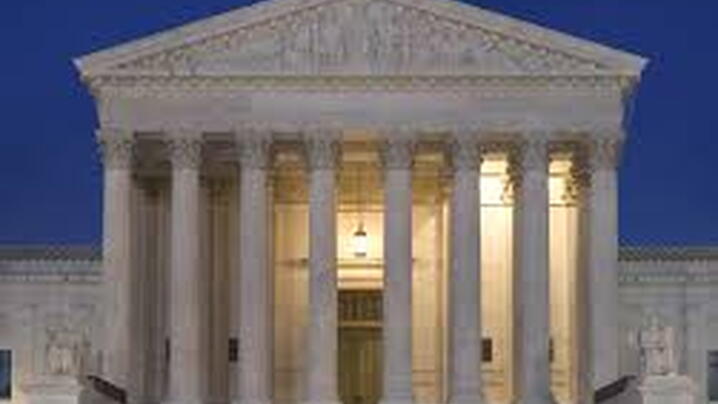
by Lisa Soronen, executive director, State and Local Legal Center
Numerous academics have complained about the Supreme Court frequently reversing lower court decisions that have denied police officers qualified immunity. In Sause v. Bauer, the court reversed (and remanded) a grant of qualified immunity.
In a unanimous per curiam (unauthored) opinion, the Supreme Court remanded this case back to the lower court to reconsider its decision granting qualified immunity to police officers who ordered a person to stop praying.
Officers visited Mary Anne Sause’s apartment in response to a noise complaint. According to the court, they then allegedly “proceeded to engage in a course of strange and abusive conduct,” including ordering her to stop when she knelt and began to pray. Sause sued the officers for violating her First Amendment right to free exercise of religion.
The Tenth Circuit affirmed a lower court granting the officers qualified immunity. State and local government officials can be sued for monetary damages in their individual capacity if they violate a person’s constitutional rights, but qualified immunity protects government officials from such lawsuits where the law they violated isn’t “clearly established.”
Sause argued she had a clearly established right to pray. The court agreed that the First Amendment protects the right to pray but “there are clearly circumstances in which a police officer may lawfully prevent a person from praying at a particular time and place.”
“When an officer’s order to stop praying is alleged to have occurred during the course of investigative conduct that implicates Fourth Amendment rights, the First and Fourth Amendment issues may be inextricable.” In this case, the Supreme Court concluded the lower court needed answers to numerous questions before it could decide whether Sause’s First Amendment or Fourth Amendment rights (to be free from an unlawful search) were violated.
More specifically, the court noted: “[a] the case comes before us, it is unclear whether the police officers were in [Sause’s] apartment at the time in question based on her consent, whether they had some other ground consistent with the Fourth Amendment for entering and remaining there, or whether their entry or continued presence was unlawful. Nor does her complaint state what, if anything, the officers wanted her to do at the time when she was allegedly told to stop praying.”
Related Content
Qualified Immunity Ruling for Police Officer Causes a Stir. A 2018 blog post looks at the controversy caused by the dissent In a case about the granting of qualified immunity to a police officer.
Supreme Court Clarifies Qualified Immunity Standard. This 2017 blog post analyzes the court’s decision to clarify that the granting of qualified immunity can only be based on the facts presented at the time of the incident, not facts learned after the incident in this case of a shooting.
Unqualified Win in Qualified Immunity Cases. This 2014 blog post looks at two cases where qualified immunity was granted to local and federal law enforcement officers.
New, Reduced Membership Dues
A new, reduced dues rate is available for CAOs/ACAOs, along with additional discounts for those in smaller communities, has been implemented. Learn more and be sure to join or renew today!
